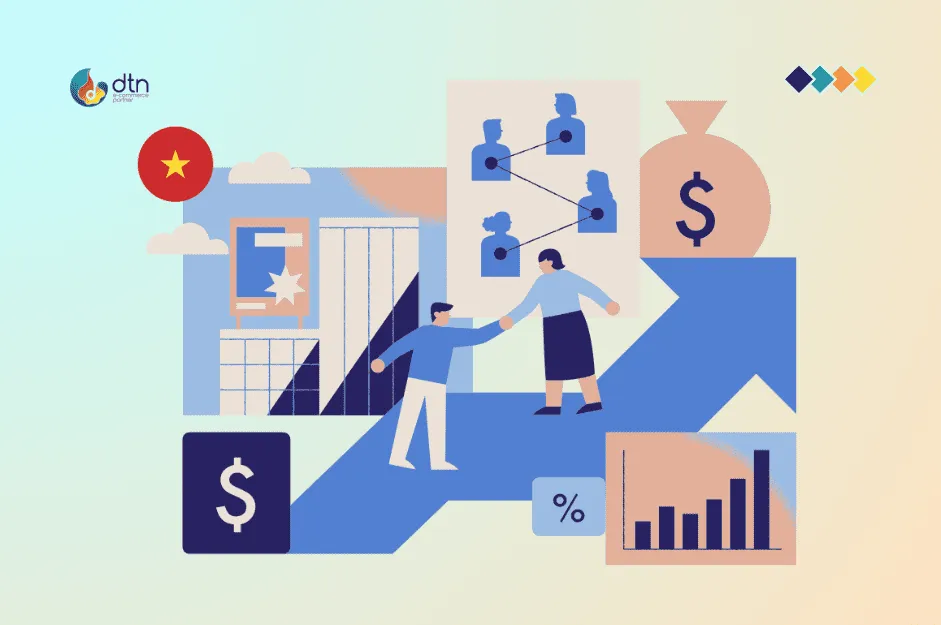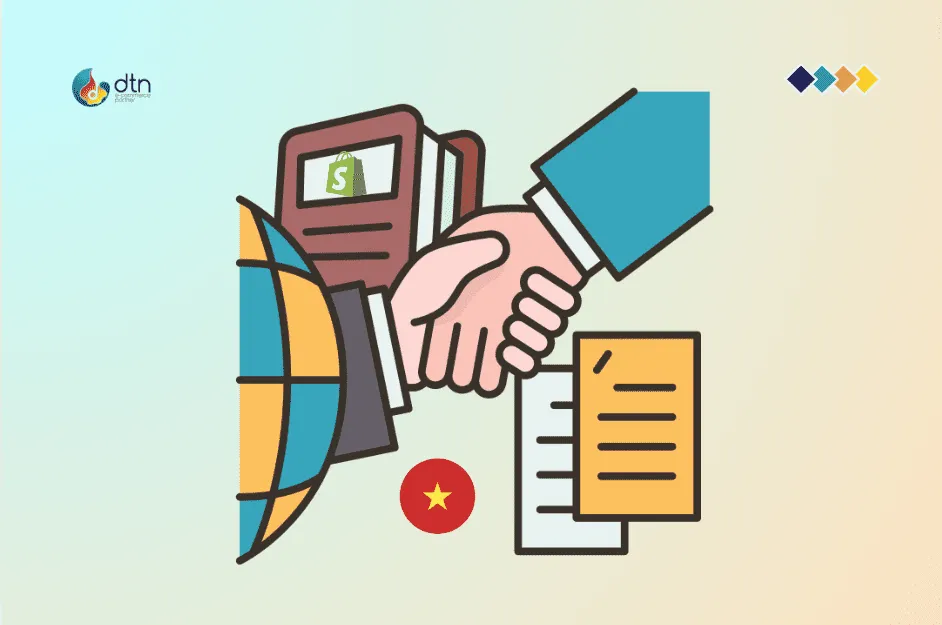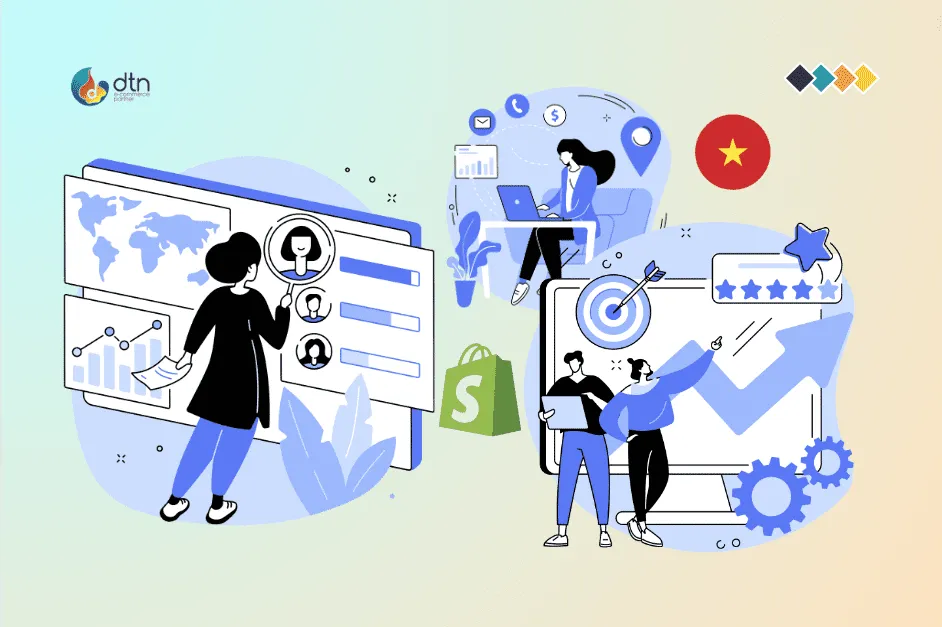As the e-commerce industry continues to thrive, more and more businesses are turning to Shopify as their platform of choice for building and managing their online stores. Shopify’s user-friendly interface, robust features, and strong community support have made it a go-to solution for entrepreneurs and small-to-medium-sized enterprises around the world.
However, with the rapid growth of the Shopify ecosystem, the demand for skilled Shopify developers has also increased significantly. This is where Vietnam has emerged as an attractive destination for Shopify outsourcing.
In this comprehensive guide, we’ll explore the benefits of Vietnam outsourcing for Shopify projects, the key considerations, and the steps to successfully leverage Vietnam’s talent pool for your Shopify development needs.
Table of Contents
The Rise of Vietnam as a Shopify Outsourcing Destination
Vietnam has been steadily gaining recognition as a premier destination for IT outsourcing, with a growing pool of highly skilled and cost-effective tech talent. This trend extends to the Shopify development space as well, with a large and ever-expanding community of Shopify experts in Vietnam.
Several factors contribute to Vietnam’s appeal for Shopify outsourcing:
- Abundant Talent Pool: Vietnam boasts a large and well-educated workforce, with a strong emphasis on STEM (Science, Technology, Engineering, and Mathematics) education. This has resulted in a steady supply of skilled Shopify developers, capable of delivering high-quality work.
- Cost-Effectiveness: Compared to Western countries, the cost of Shopify development in Vietnam is significantly lower, making it an attractive option for businesses looking to optimize their development budgets.
- Language Proficiency: Many Vietnamese Shopify developers have excellent English language skills, ensuring smooth communication and collaboration with international clients.
- Time Zone Compatibility: Vietnam’s time zone, which is typically several hours ahead of North America and Europe, can be advantageous for coordinating project schedules and providing round-the-clock support.
- Dedicated Shopify Experts: Vietnam has a growing community of Shopify experts, with developers who have deep experience in building custom Shopify stores, integrating third-party apps, and optimizing for performance and scalability.

Key Considerations for Shopify Outsourcing in Vietnam
When exploring Vietnam as a Shopify outsourcing destination, there are several key considerations to keep in mind:
- Vetting and Selecting the Right Partner: Carefully research and vet potential Shopify development agencies or freelancers in Vietnam to ensure they have the necessary skills, experience, and a track record of delivering high-quality work.
- Clear Communication and Collaboration: Establish clear communication channels and collaboration processes to ensure seamless coordination between your team and the Vietnam-based Shopify developers.
- Project Management and Oversight: Implement robust project management practices, such as regular check-ins, progress reporting, and quality assurance, to maintain control and visibility over the project.
- Cultural Differences and Adaptability: Be mindful of cultural differences and be prepared to adapt your management style and communication methods to ensure a successful collaboration.
- Intellectual Property and Data Security: Ensure that appropriate measures are in place to protect your intellectual property and sensitive data during the outsourcing process.

Steps to Leverage Vietnam for Shopify Outsourcing
If you’ve decided to explore Vietnam as a Shopify outsourcing destination, here are the steps to get started:
- Define Your Project Requirements: Clearly articulate the scope of your Shopify project, including the desired features, functionality, and any specific technical requirements.
- Research and Vet Potential Providers: Conduct a thorough search for Shopify development agencies or freelancers in Vietnam. Examine their portfolios, client reviews, and case studies to assess their capabilities.
- Conduct Interviews and Evaluate Candidates: Schedule interviews with your shortlisted providers to gauge their technical expertise, communication skills, and overall fit for your project.
- Establish a Collaborative Workflow: Work with your chosen provider to define a clear project management process, communication channels, and reporting mechanisms to ensure seamless collaboration.
- Implement Robust Quality Assurance: Implement a comprehensive quality assurance process, including regular code reviews, testing, and feedback loops, to ensure the delivered work meets your standards.
- Maintain Ongoing Collaboration and Support: Maintain open communication and a collaborative mindset throughout the project, and be prepared to provide ongoing support and guidance to your Vietnam-based Shopify development team.

Conclusion
Vietnam’s strong Shopify development talent, cost-effectiveness, and cultural adaptability make it a compelling option for businesses looking to outsource their Shopify projects. By carefully selecting the right partner, establishing clear communication and collaboration processes, and maintaining active oversight, you can leverage Vietnam’s expertise to build successful Shopify stores that drive your business forward.
Frequently Asked Questions
We’ve compiled a list of answers to common questions.
Why is Vietnam an attractive destination for Shopify outsourcing?
Vietnam offers a large pool of skilled developers, cost-effective pricing, strong English proficiency, favorable time zones for Western clients, and a growing community of dedicated Shopify experts.
What are the main advantages of outsourcing Shopify development to Vietnam?
The main advantages include significant cost savings, access to highly skilled developers, efficient project delivery, cultural compatibility, and scalability of development services.
What key factors should be considered when outsourcing Shopify projects to Vietnam?
Key factors include vetting and selecting the right partner, ensuring clear communication and collaboration, implementing robust project management and oversight, adapting to cultural differences, and protecting intellectual property and data.
How can businesses ensure successful Shopify outsourcing in Vietnam?
Businesses can ensure success by defining clear project requirements, thoroughly researching and vetting potential providers, conducting interviews, establishing a collaborative workflow, implementing quality assurance processes, and maintaining ongoing support and communication.
What steps should be taken to leverage Vietnam for Shopify outsourcing?
Steps include defining project requirements, researching and vetting providers, evaluating candidates through interviews, establishing a clear project management process, implementing quality assurance, and maintaining continuous collaboration and support.



